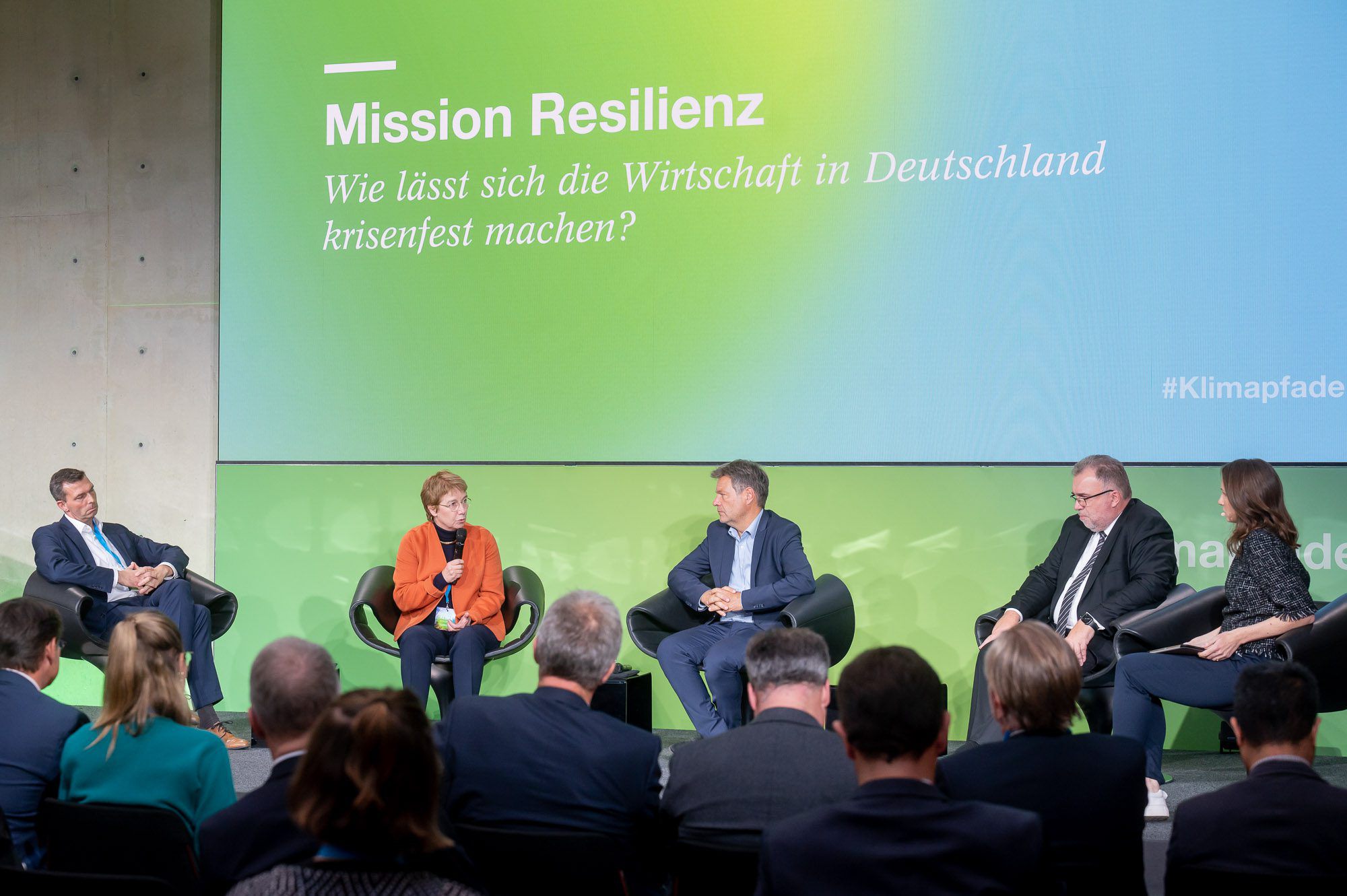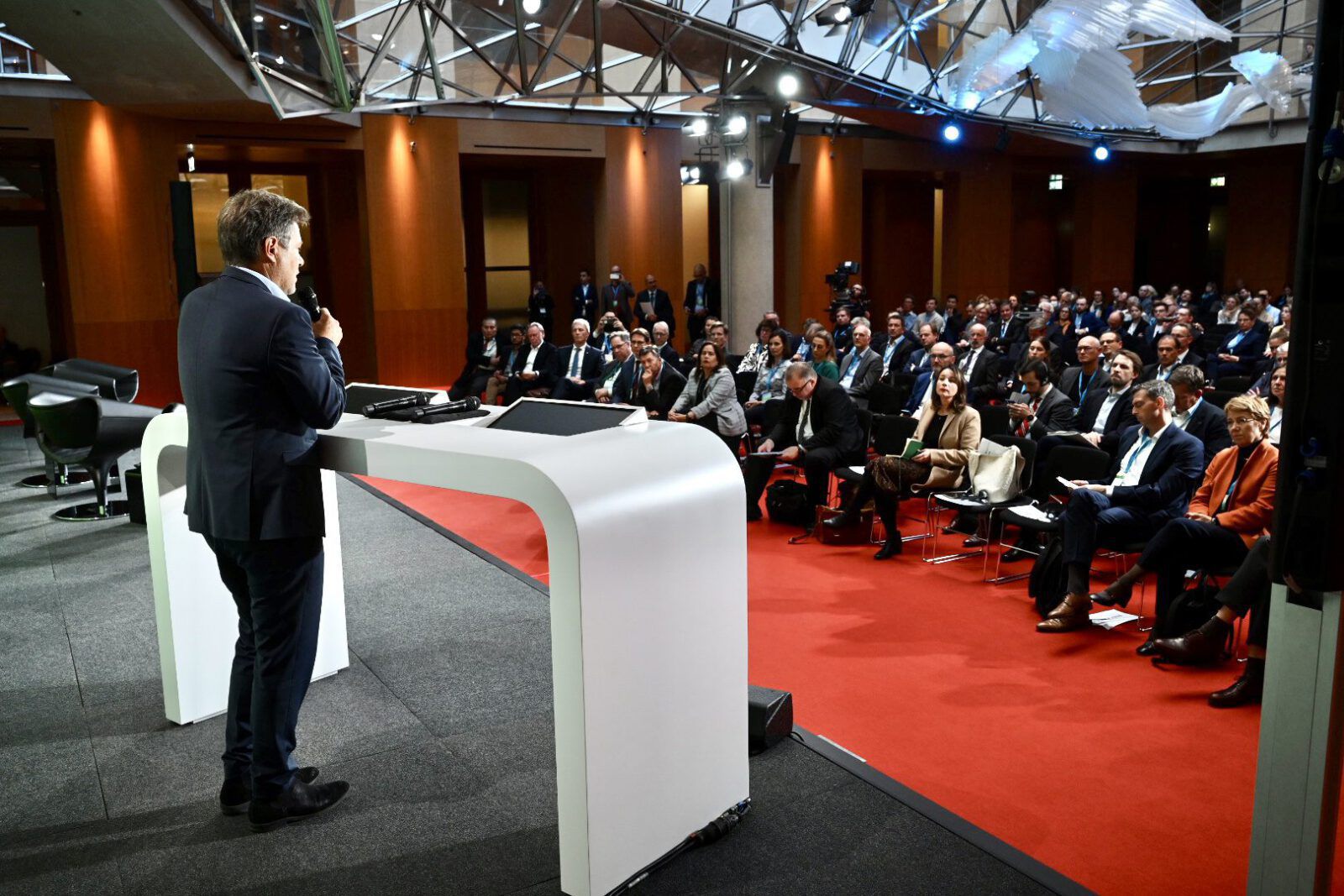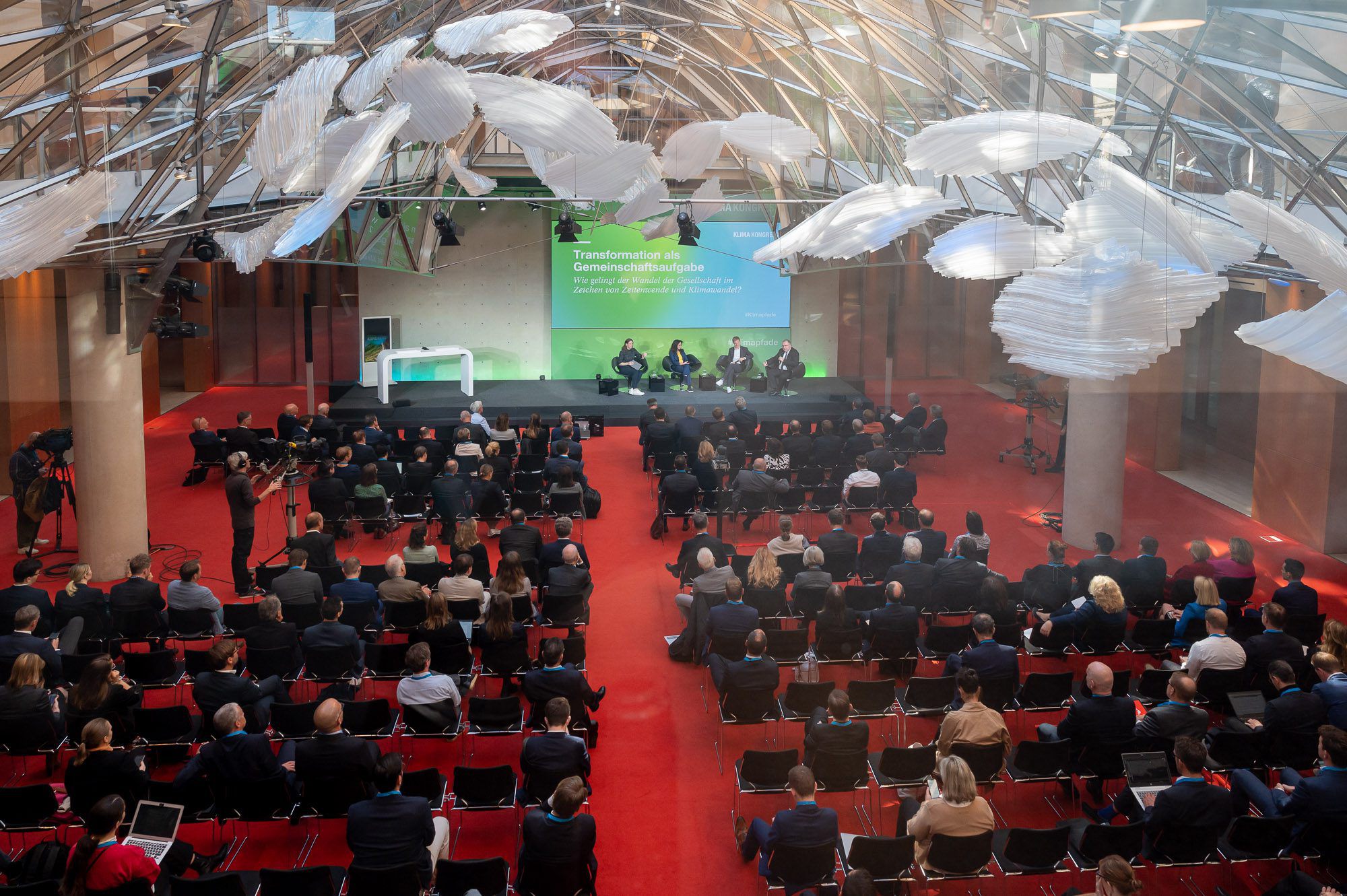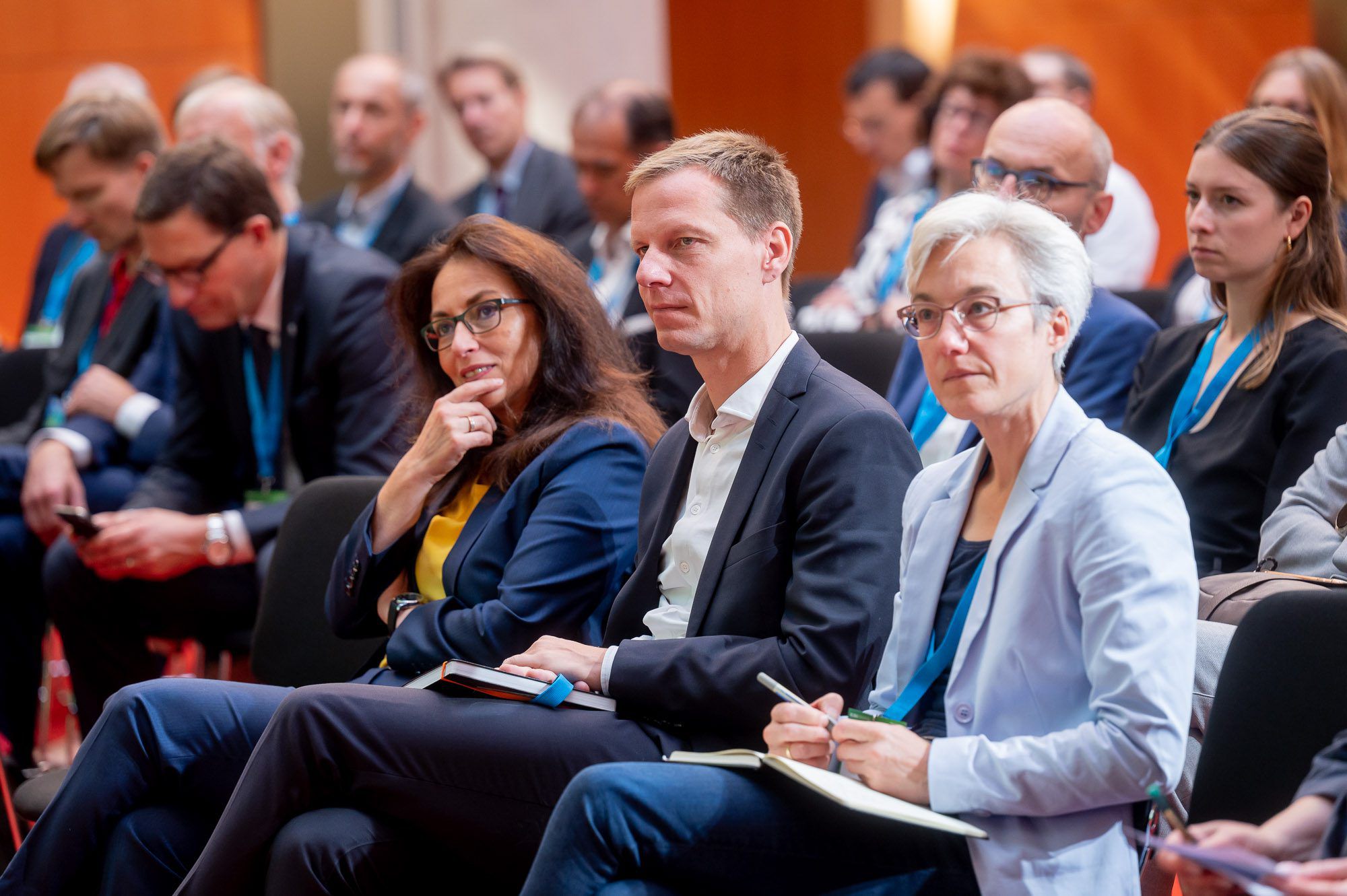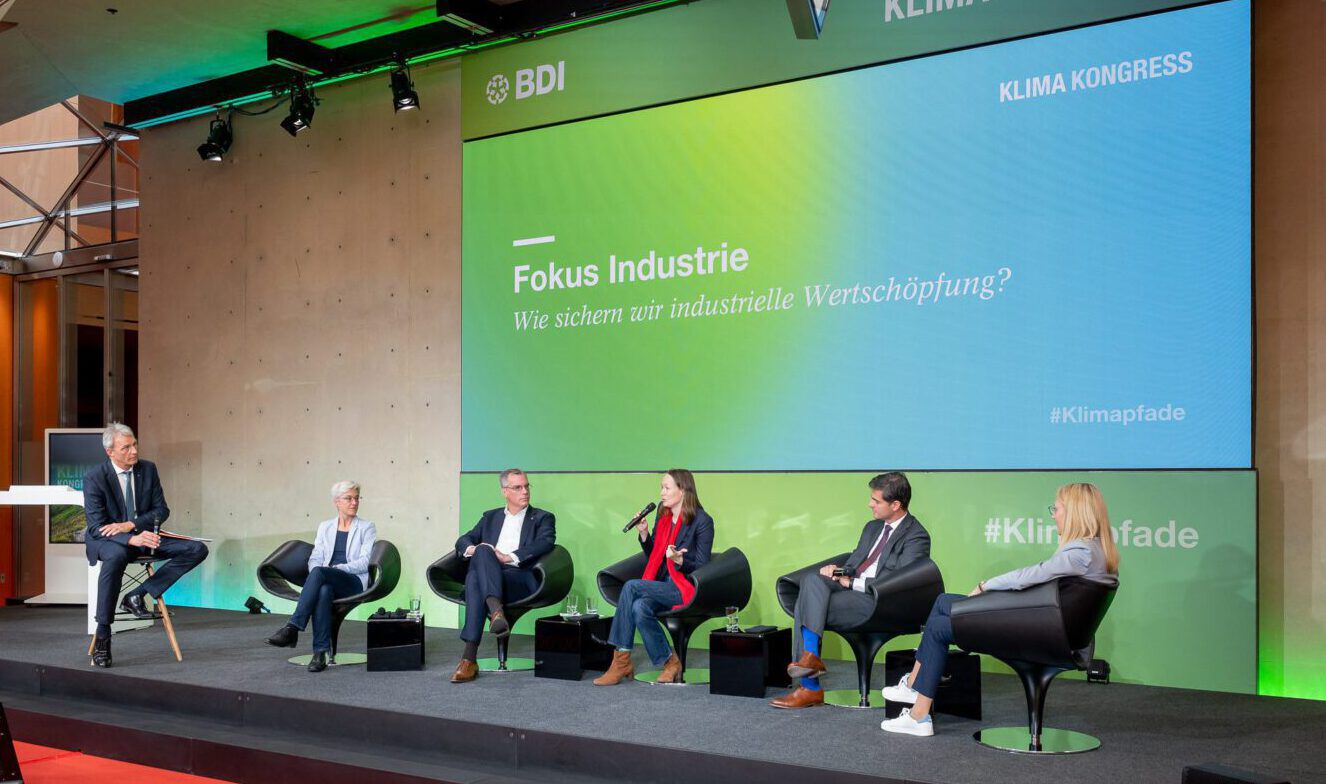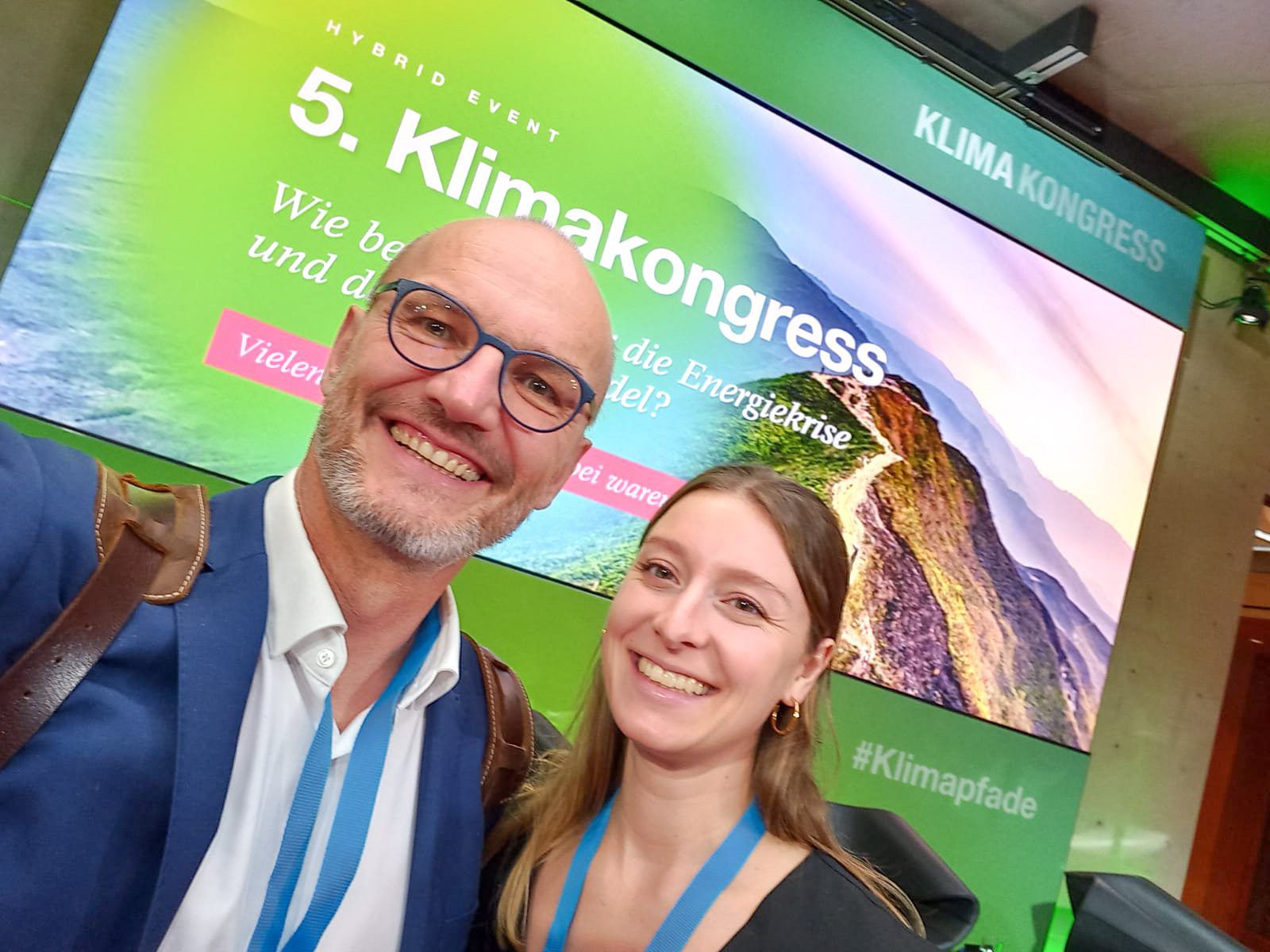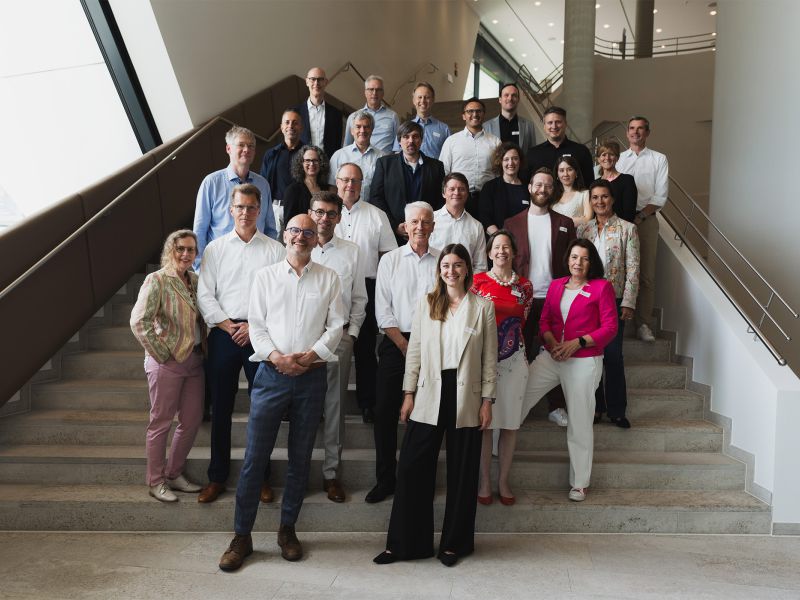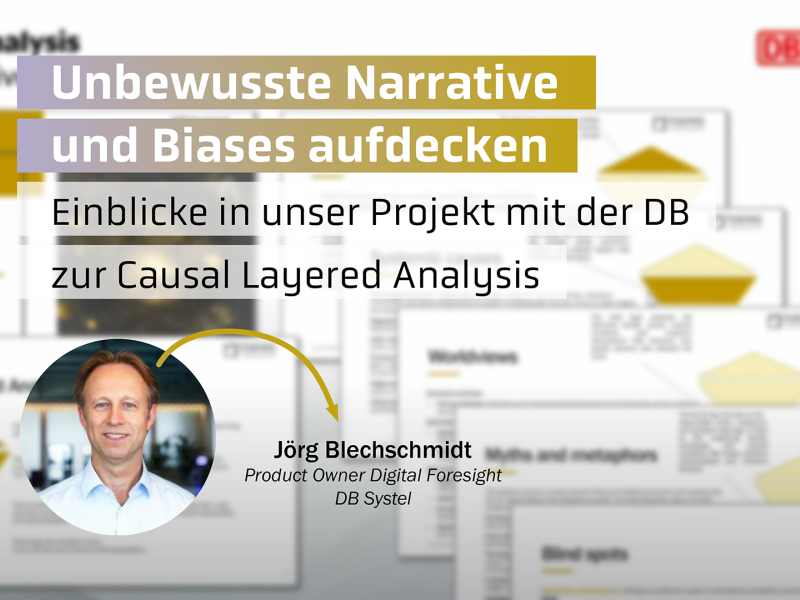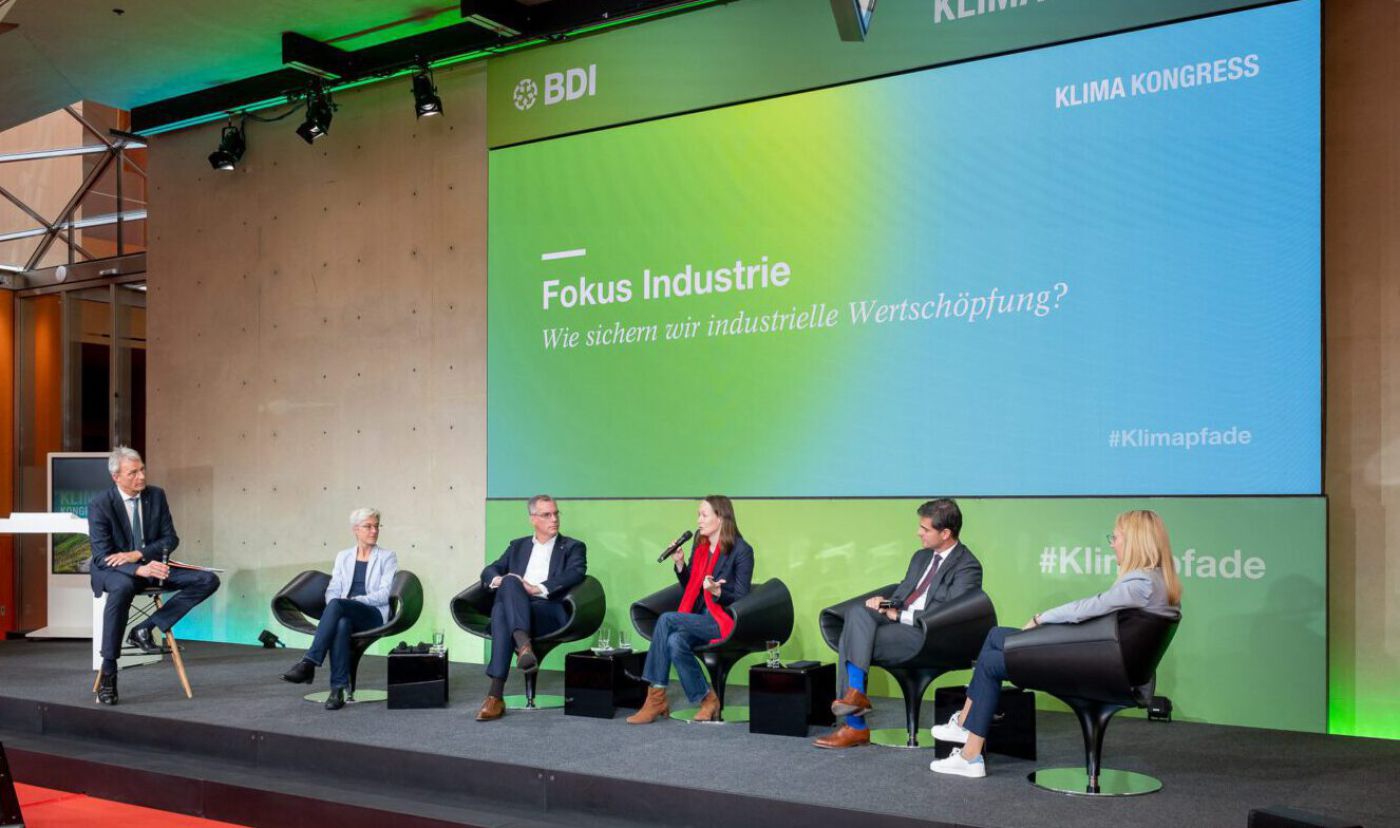
Picture: © Christian Kruppa / BDI.
For futurologists, capturing current impressions and moods from industry is a fundamental part of their work. In order to be able to develop well-founded futures, it is also important to look at the conditions in the present and the past.
For this reason, CEO Jan Berger and Managing Director Carina Stöttner visited the Climate Congress of the BDI – Federation of German Industries on September 22. There they gathered first-hand insights from industry leaders.
Clearly audible in terms of the future was: the industry is making great strides in terms of climate targets. The statement from Salzgitter AG CEO Gunnar Groebler was unequivocal: “We will only be able to survive in Europe in the long term if we go down the path of decarbonization.” His company, Groebler said, has set itself the goal of climate neutrality.
For the present, however, the sword of Damocles remained in the room – the simmering energy crisis. Concerns about it were expressed by both sides, politics and business. The demands of business representatives to local political representatives were loud.
While the energy crisis will once again challenge the business case of every company, at the same time companies are facing old familiar obstacles.
What became clear was: When it comes to building renewables, we need to be able to act faster, especially at the local level. Katja Wünschel, CEO RWE Onshore Wind and Solar Europe & Australia, comments: “The goals are ambitious, but implementation is lagging behind. Especially for onshore and solar, we see the biggest challenges at the municipal level. Theoretically, you could get a permit in seven months. In practice, it takes five to seven years. There is a wind farm in Germany that was implemented in two years of development. What went differently here? There was an absolute commitment from everyone involved.”
Commenting on regulatory hurdles, Groebler added, “What we are already building up in terms of regulatory work in Brussels with regard to green hydrogen will slow down the market here by at least five years – other countries will pass us by and we will get into dependencies again. The European Union must allow such an industry to emerge here and thus give energy-intensive industry a chance to stay here as well”
The voices predicting a relocation of production also caused concern. BDI President Siegfried Russwurm mentioned, “20% of German SMEs said in one of our surveys that they are considering relocating production due to high energy prices.”
The words of Markus Steilemann, CEO of plastics manufacturer Covestro AG, were apt: “The situation is very dramatic because we not only have an immense increase on the energy cost side, but also because the customer industries in DE and Europe are staying away.” That, he says, is causing them to run into difficulties on the sales side as well. He says, “We have to find something to bring energy prices down. (…) We invest where there is demand – and right now this is predominantly in Asia, where energy prices are also quite low at the moment.”
The next few months will set a decisive course for the future. To this end, Themis Foresight is publishing the report “Energy Futures,” which is part of the series “The Fifth Industrial Revolution.” In it, Prof. Dr. Lothar Abicht and Jan Berger describe what the economy and energy systems could look like in 2050. The report provides information on what needs to be initiated today so that we do not fall back into the traps of the past.

